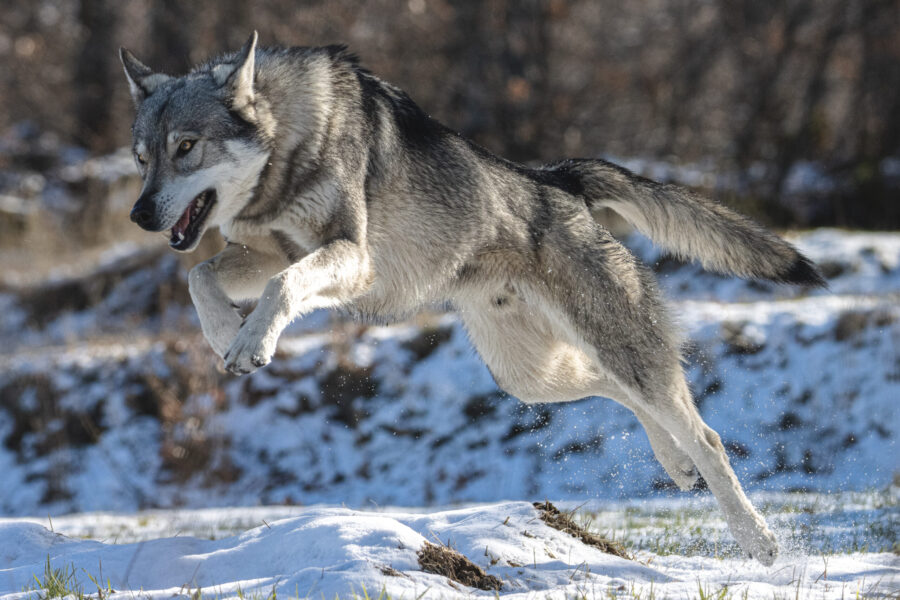The strain is being seen as a potential cure for a persistent disease in canines.
A recent study led by researchers at Oregon State University Cascades suggests that gut microbes discovered in wild wolves might hold the solution to alleviating a common and debilitating gastrointestinal condition observed in domestic dogs.
Published in the journal Applied Microbiology, the study introduces a unique strain of Paenibacillus bacteria displaying characteristics of probiotics, which are organisms that confer health benefits to their host. Specifically, this probiotic strain has the potential to address canine inflammatory bowel disease, a persistent ailment marked by symptoms like vomiting, reduced appetite, weight loss, flatulence, stomach discomfort, and a rumbling abdomen.
The lack of a known cure for this ongoing gastrointestinal dysbiosis, a disturbance in the natural balance of gut microbes, presents a challenge, with treatment options remaining limited. Factors contributing to this condition encompass genetics, environmental elements, the immunological state of the GI tract, and notably, an altered gut microbiome.
This research collaboration between OSU-Cascades and Oregon States Carlson College of Veterinary Medicine signifies a significant stride toward developing a dietary supplement or food additive capable of guiding a dog’s gut microbiome back to a composition akin to that of their wolf ancestors, with whom they share a common lineage.
Dogs, as the first domesticated animals, currently follow a diet significantly different from that of wolves. Modern dog diets, rich in carbohydrates, contrast sharply with a wolf’s diet. For instance, starches in processed dog food are challenging to digest and can adversely affect the microbial community in a dog’s GI tract and its gastric physiology.
In the study, researchers collected gastrointestinal samples from a deceased wolf that had succumbed to injuries from a car collision. Subsequently, they identified 20 distinct gut bacteria that, based on preliminary genetic assessments, exhibit probiotic properties. For this paper, the team conducted comprehensive genome sequencing on a novel strain of Paenibacillus.
This bacterium encodes enzymes capable of breaking down complex carbohydrates like starches. Additionally, it possesses gene systems that express antimicrobials. Non-toxic, spore-forming bacteria stimulate anti-inflammatory immune responses within the gut and hinder the growth of pathogens. Considering these attributes, this bacterial isolate has the potential to serve as a valuable probiotic for domestic dogs.







